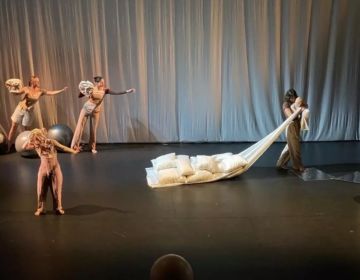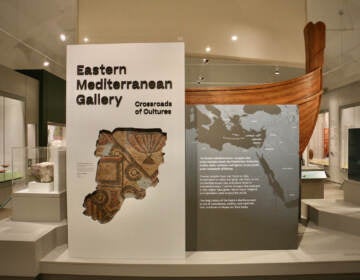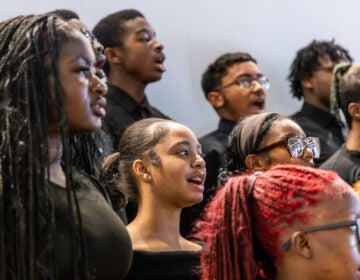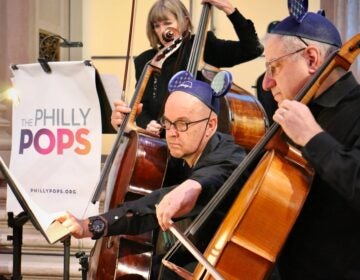The history of the Philadelphia Orchestra now lives at Penn
More than 1,000 boxes containing the complete 175-year archive of the Orchestra and the Academy of Music have moved across town to Penn Library.
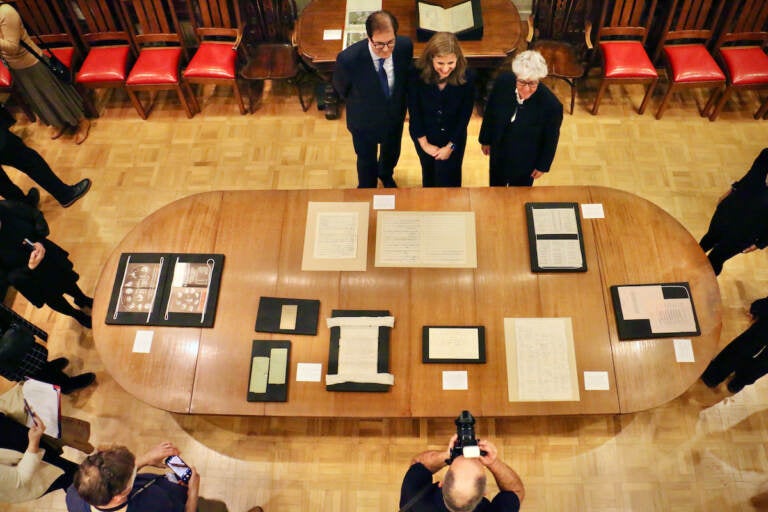
Items from the archives of the Philadelphia Orchestra are displayed in the University of Pennsylvania's Lea Library. Behind the table are (from left) orchistra President Matías Tarnopolsky, university President Elizabeth Magill, and Constantia Constantinou, director of University of Pennsylvania libraries. (Emma Lee/WHYY)
The Philadelphia Orchestra has sent 175 years of history to the University of Pennsylvania.
The entire historic archive of the Orchestra and the Academy of Music have been donated to the Penn Library, including business records, correspondence, sheet music, photographs, programs, and sound recordings.

“The stories of the Academy of Music, which opened in 1857, and the Philadelphia Orchestra, which was founded in 1900, are integral to the story of Philadelphia,” said Matias Tarnopolsky, president and CEO of the Orchestra and Kimmel Center. “If you’re interested in Philadelphia, then this collection has entry points to stories about people that were the parents of the great institutions of this city.”
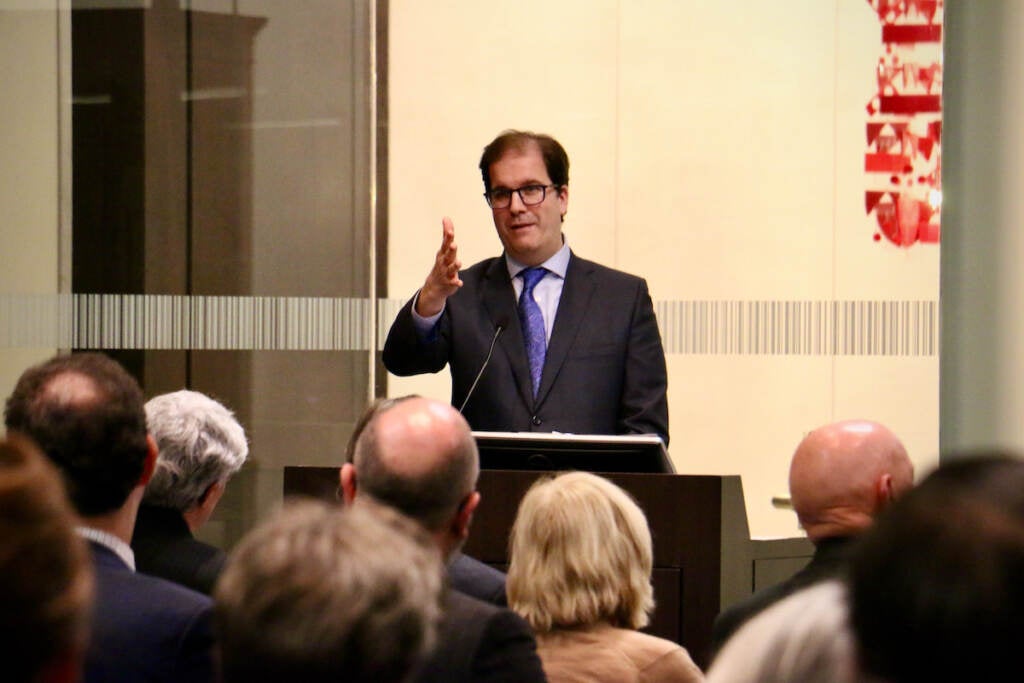
The Penn Library already contains the personal archives of two of the Orchestra’s towering conductors and music directors: Leopold Stokowski and Eugene Ormandy. The addition of the Orchestra’s institutional collection — now the largest single collection in Penn’s Kislak Center for Special Collections — brings a nearly complete history of the orchestra under one roof.
“We’re talking about almost 1,000 linear feet of collection. It’s a massive collection,” said Constantia Constantinou, vice provost and director of Penn Libraries. “It will take us some time to process the entire collection. But the team of curators and archivists are able to recognize the priorities of the collection and to triage, let’s say, the accessibility of the collection and make it discoverable for the broader public.”

One of the stories the collection reveals is the development of South Broad Street. In 1925, a steel-structured building was being erected across the street from the Academy of Music. Assistant Manager Louis Mattson sent a memo to Stokowski: “I am very much worried for fear that steel work for which the building just seems to be ready will interfere with your rehearsals and concerts.”
The collection contains itineraries from tours, including 1937’s extensive cross-country tour by train that details which Pullman car each musician was assigned to. There are also never-released sound recordings of the Orchestra’s performances.
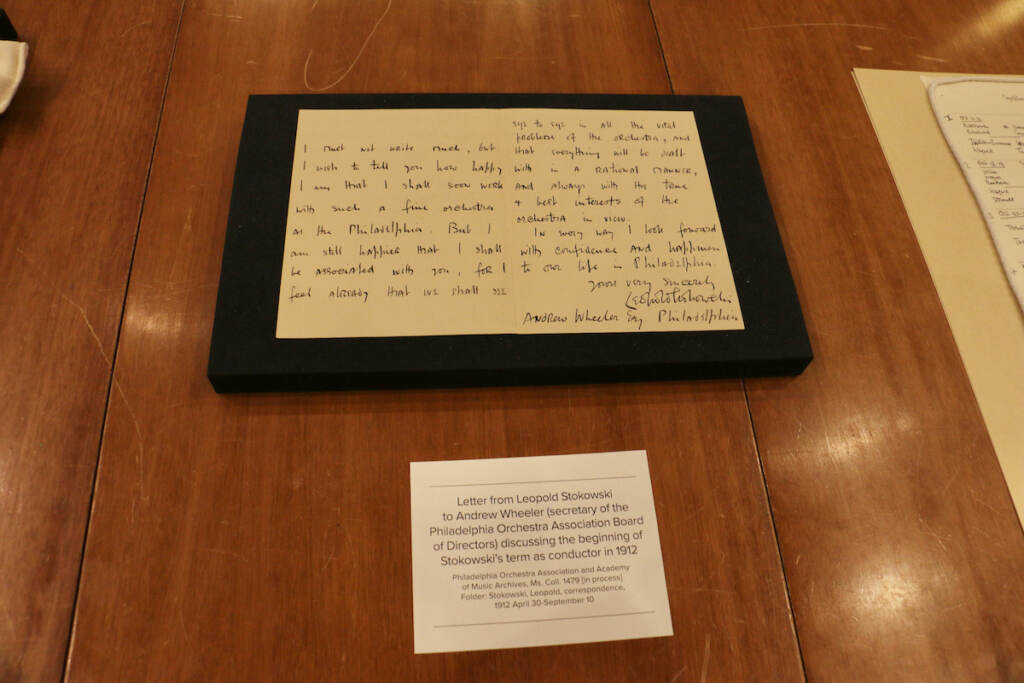
The collection also contains the founding charter of the Philadelphia Orchestra Association, which created the administrative entity that runs the operation.
“Its object is to encourage the performance of first class orchestral music in the city of Philadelphia,” reads the charter’s Article II.
The somewhat dry legal document does not have the poetic language of the opening lines of the U.S. Constitution, but to Orchestra CEO Matías Tarnopolsky it elicits a similar mix of strong emotions.
“It filled me with a sense of inspiration, awe, and great fear, actually,” he said. “We are all sitting on something that is far larger than any of us, that we need to treasure, preserve, and improve for the next generation.”
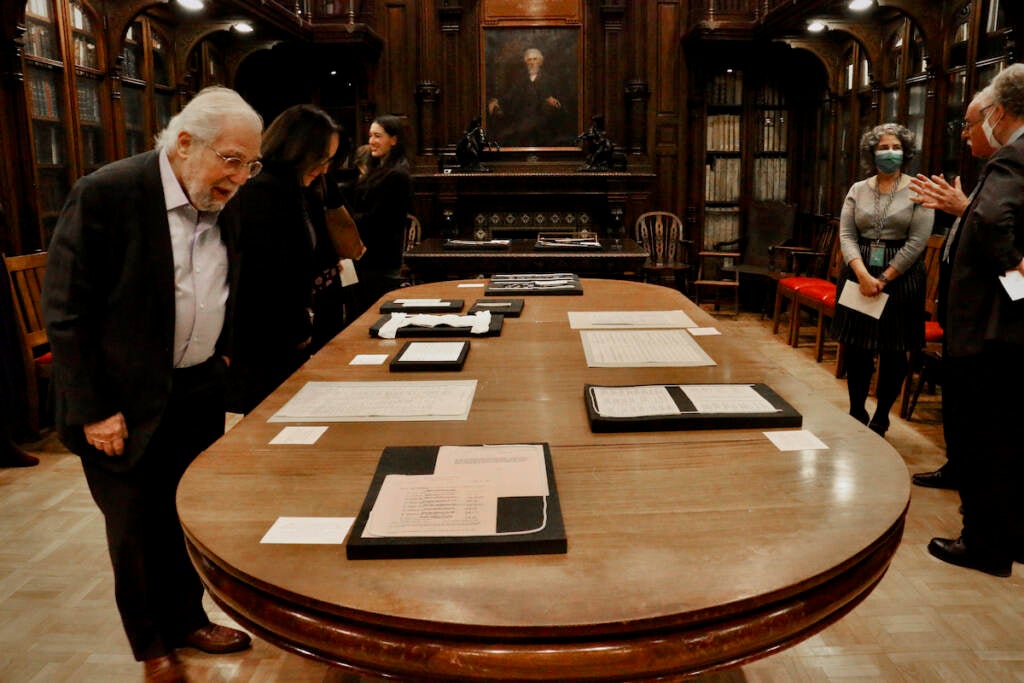
Tarnopolsky said the idea of giving the archive to Penn had been floating around for decades, since well before he came to the Orchestra as CEO in 2018. It became more urgent in his mind when the Orchestra’s archivist, Jack McCarthy, gave Tarnopolsky a tour of the room in which it was stored on an upper floor of the Academy of Music.
“I went to visit the archive of the Philadelphia Orchestra at the Academy of Music and was at once overwhelmed and inspired by what I saw. And then horrified,” Tarnopolsky said. “While technically it was temperature- and humidity-controlled, I felt like a pipe could burst or a fire could break out at any minute.”
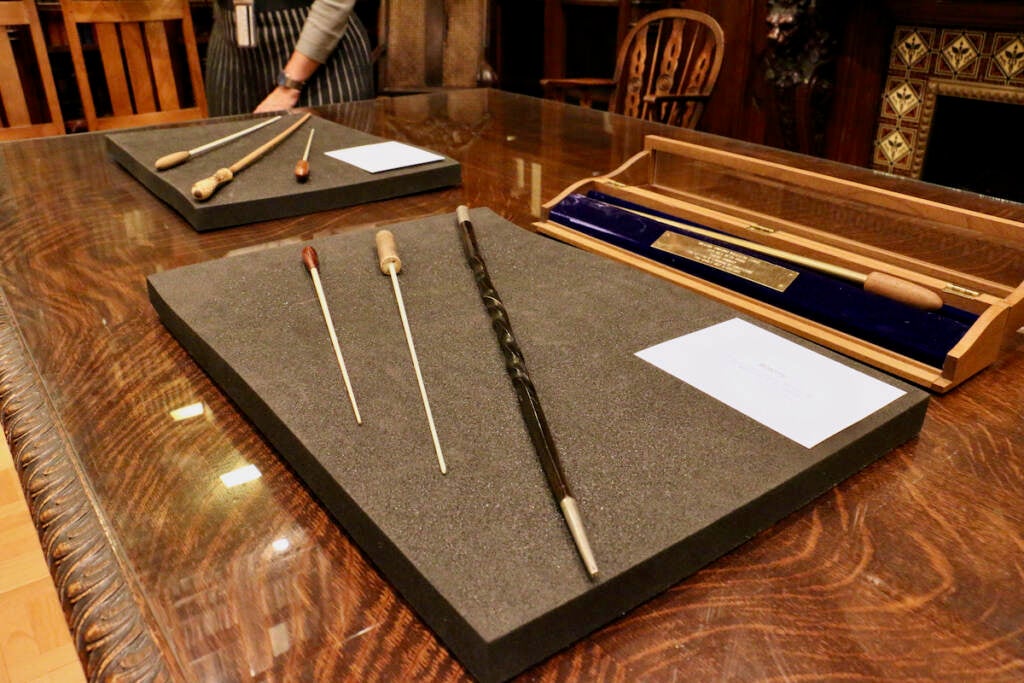
His mind was assuaged by a visit to Penn Library’s music department, which has on view the podium seen in the Disney film “Fantasia,” when an animated Mickey Mouse pulls on the tuxedo tails of Leopold Stokowski to congratulate him for conducting the Philadelphia Orchestra through the film’s soundtrack.
“I thought, ‘OK, this is where our archives need to be,’” Tarnopolsky said.
Constantinou said Penn is better equipped and staffed to give the archive the attention it deserves.
“We have our own digital lab here in this library. We have a lab for preservation and conservation,” she said. “We have researchers in a music department, plus accessibility to the entire community of Philadelphia who can come into our libraries. We invite scholars from all around the world to come to campus and interact with the collection, work closely with music professors, with music students, with curators, with archivists, with preservationists to interpret the collections.”
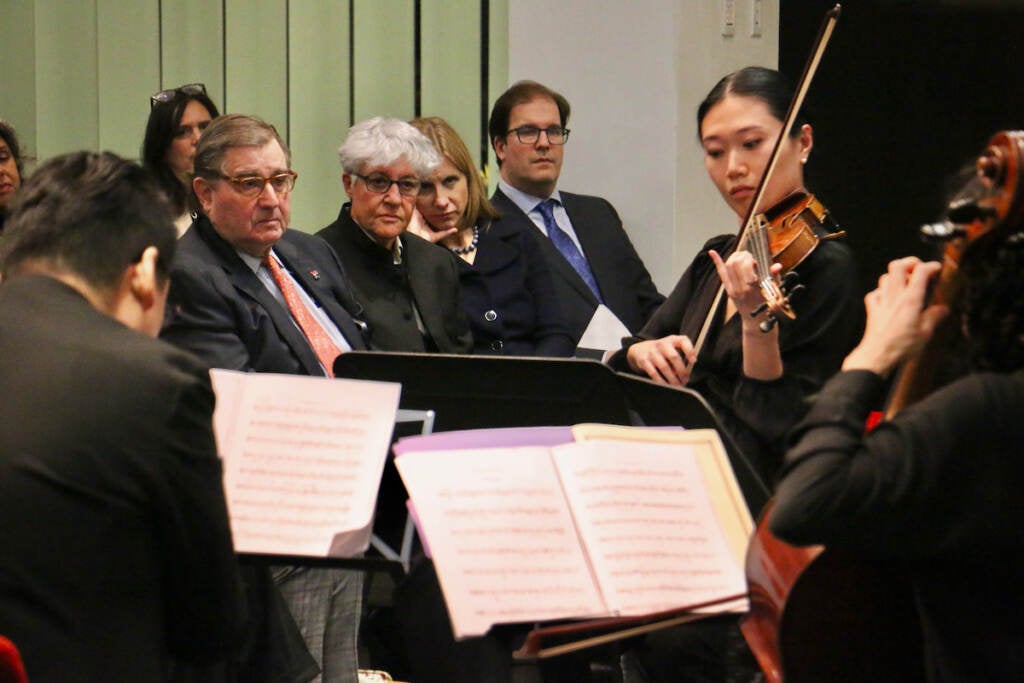
The archivists at Penn have already begun to process and digitize the collection, but expect the task to take several years, along the way prioritizing what researchers value the most.

Saturdays just got more interesting.
WHYY is your source for fact-based, in-depth journalism and information. As a nonprofit organization, we rely on financial support from readers like you. Please give today.



